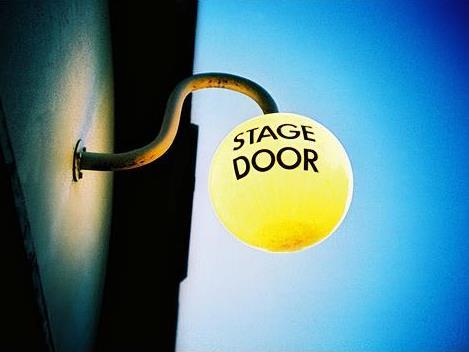Image: Stage Door by James Butler.
Managing to eke out a living from producing has its difficulties. On the surface there can appear to be limited opportunities. If you do manage to find work you are responsible – especially if you work as an independent – for almost every aspect of a production, from casting couch to final curtain.
You also need to be able to win the respect of investors and funding bodies, secure the venue and pay the bills. With high levels of stress, and seemingly limited opportunities, what steps do you need to take to become a successful producer?
Mark Postlethwaite, Lecturer in Scenery and Props at the Victorian College of the Arts (VCA) tells ArtsHub that there is an ongoing dialogue within his faculty about the skills needed in production.
‘I think there is a balance between having a skill set, having a particular capacity to do a particular task, but at the same time it’s about having the right personality for a role,’ he told ArtsHub.
Having just said goodbye to the 2013 VCA Production graduates – the last students to complete this iteration of the course before it has become narrowed into specialist streams – Postlethwaite has been talking to a lot of graduates about what they think is needed in the profession.
‘We really are trying to get a balance between the capacity to work in a collaborative way with a whole range of people, to give students a skillset that allows them to have the tools to do that, but also the experience on shows to actually understand how to operate and how to use those tools in a collaborative environment.’
VCA Production graduate Lyndie Li, who has just secured herself a role with Polyglot children’s theatre, says she thinks the ability to succeed in production relies on the character of the person.
‘I think that no matter how skilled you are in anything it’s all about the attitude, so if you’re willing to take on as much work and willing to do whatever people need you to do then yeah I think then you’ll go far,’ she tells ArtsHub.
‘It’s good to have a knowledge of lighting and a base knowledge of sound, even costume – sometimes on small shows you’ll maybe have to do some sewing and maintenance for costumes – so having a skill base is really helpful.’
Perhaps the main thing a person needs if they are going to make a living as a producer is versatility. No two productions are the same and being involved from start to finish demands a certain level of engagement with a variety of productions. Thinking outside the box as to where your skills can apply is also helpful.
‘One of the things that we’re keen to promote with graduates is that although we are using theatre to promote a range of skills, those skills are applicable to a very wide range of areas beyond a theatre production in a theatre,’ says Postlethwaite. ‘There are so many festival events and corporate events and all sorts of things going on that the scope for work, if they are smart about their careers is quite wide and keeps growing.’
Working on events can be an excellent way for someone to use their skills. Thinking commercially instead of independently also has it’s benefits – Beyoncé needs producers just as much as your friend’s Fringe show, and these large scale productions often aren’t as far out of reach as people think.
And being commercially minded also means that as a producer you can’t be frightened of money, because at the end of the day that is the fuel that runs your show. If you’re running a not for profit production of the smell of an oily rag, or a major production, you need to get comfortable with capital.
Being able to pick the right show is also an essential skill. While you may not have the luxury of choosing to begin with, once you have some experience try to select projects you are engaged with. You could be the most highly organised collaborative person in the world, but if you don’t give a damn about what’s happening on stage you won’t do a good job.
One of the best things about production is that if you have any skill at all – conversational german, hot glue decoration – it’s likely that at some point in your career they will end up coming in handy. Keeping your relationship with the director professional and not too casual is also another tip that experts will often give. Yet, what it all boils down to is opportunity.
‘The standard question that I get from every parent is “will my child get a job?” and my standard answer is “we haven’t had a graduate leave who’s wanted to work in the profession who hasn’t been able to make a living out of it”. Now, whether that’s a good living or whether that’s eking out an existence and finally moving onto something else again comes down to what the individual wants to achieve out of it,’ says Postlethwaite.
‘We can’t give you talent; you come through the door with that in your DNA, and how you take that on as a student and then use it really is up to you.’





